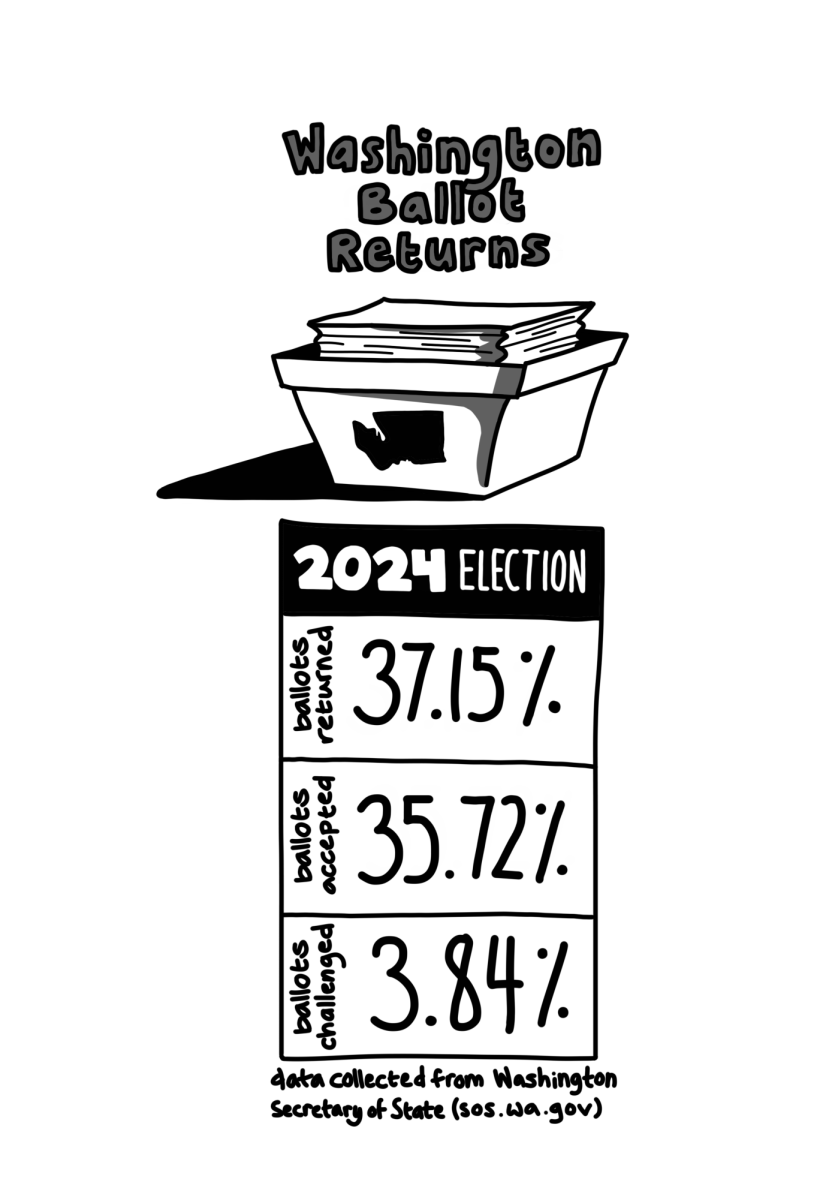When the word ‘food’ is mentioned, we often imagine an object that is quickly eaten to sustain our energy. What we usually don’t consider is how food arrives on our plates and how food affects people on a global socioeconomic scale.
Over President’s Day weekend, 15 Whitman College students attended a food justice conference at the University of Oregon in Eugene, exploring the relationship between the agricultural community and food consumers, along with the effects of current food practices. Funding to attend the conference was provided by Associated Students of Whitman College (ASWC).

Students heard from scholars from the fields of environmental studies, sociology and anthropology along with national policy makers and farmers. These speakers addressed the effects of modern agricultural practices on a variety of topics ranging from immigration to environmentalism.
Junior Lauren McCullough organized the trip to attend the conference in hopes of spreading food justice awareness and activism across Whitman’s campus. McCullough is a social justice and social change major: a unique major which she designed: and hoped on a personal level that the conference would help her formulate ideas for her thesis. In addition, McCullough said her main goal was to organize students who are already passionate about issues related to the food system, inspiring others to see the way food affects global society.
“Food justice believes that food is a basic right for everyone, regardless of race, ethnicity or socioeconomic status,” she said.
A common perception about food movements is that they encompass an elitist culture, focusing on only organic foods and discouraging food practices that are detrimental to the environment. However, the conference encouraged students to consider food practices on an urban and low-income scale.
“Poor families are restricted to buying cheap, unhealthy food, like McDonald’s and convenience store groceries,” said first-year Monica Simmons, who attended the conference, referring to urban food deserts that lack full-scale, affordable grocery stores. “Everyone is entitled to affordable healthy foods: not at the cost of worker exploitation or environmental degradation.”
For Simmons, the conference helped her come to understanding that the solution to inequality in the food realm is far off.
“I learned that food justice requires small steps. As long as we’re actively working towards a solution, then we’re better off,” she said.

Sophomore Abby Salzer, who also attended the conference, said the discussion helped cement her interest in sustainable food practices that encourage a healthy lifestyle. To Salzer, food justice is a person’s right to culturally appropriate and sustainable foods in terms of sustaining the land, our bodies and our cultures.
“If anything, this conference showed me that social concerns, economic concerns and food concerns are all interconnected,” she said.
Salzer hopes that this conference will similarly help Whitman students realize that food affects many different issues, including contemporary concerns such as environmental degradation and cultural misunderstandings.
“I think we have a problem of treating food homogeneously,” she said. “It’s more about getting those people, for whom food is most influential, in the discussion; to give them the power to be heard, so that we’re not speaking for them.”
Students who attended the conference are for the most part involved in other campus activism efforts, including Campus Climate Challenge, Action for Animals and Whitman Direct Action. McCullough believes that these efforts all relate to food justice in some way, and hopes to foster activism around food justice issues on campus.
“I’m interested in taking a more holistic approach and seeing what is needed in the community,” McCullough said.
Simmons also hopes to make students aware of local eating options.
“We want to start having food dinners and bringing in local farmers to educate ourselves about local food practices and how important it is to eat local,” she said.
Because of the number of students who went on the trip and the support they were given by Whitman, McCullough believes that food justice is becoming a prevalent concern for students.
“The vast showing of people interested just goes to show that food justice is an issue,” she said.
Simmons expects to see Whitman viewing food differently in the future and contributing to the movement towards food justice.
“I think treating food as a sacred entity is the attitude we all need to fix these problems,” she said.



















